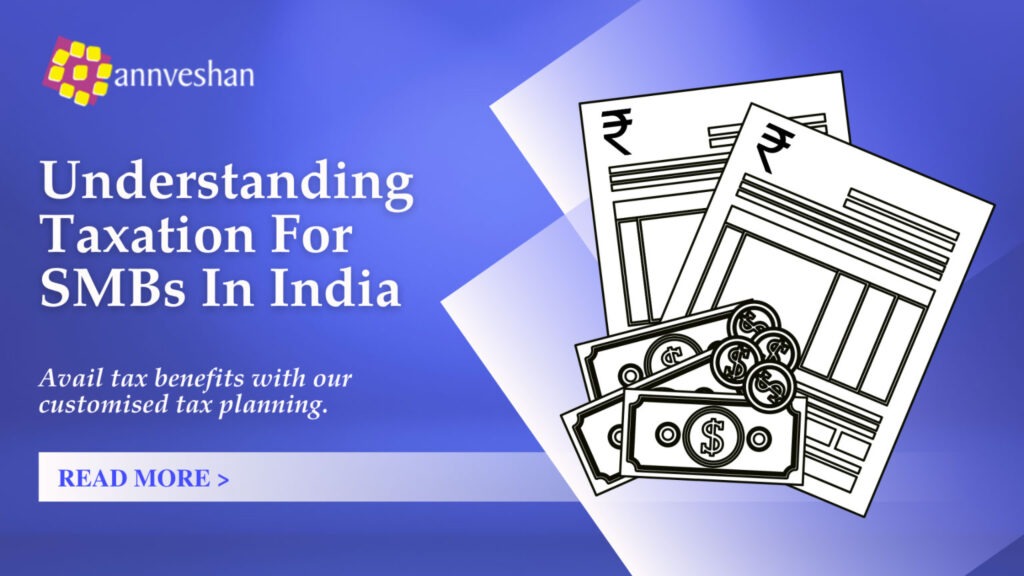Changes In Indian Tax Structures For Businesses
The total number of Micro Small and Medium Enterprises in India (MSMEs) is 63 million and with the start-up boom being termed as the backbone of India, the government of India has promulgated an ordinance to make amendments in the Income-tax Act and as stated by PM Narendra Modi “The step to cut corporate tax is historic. It will give a great stimulus to #MakeInIndia, attract private investment from across the globe, improve the competitiveness of our private sector, create more jobs and result in a win-win for 130 crore Indians.”
For domestic companies that don’t avail any exemption/incentive the government has reduced that basic corporate rate tax from 30% to 22% with an aim to further propel the ‘Make-in-India’ initiative.
It is important to understand tax laws and implement tax planning which will help small businesses to save a considerable amount of money that can be used to further grow their business.
In order to understand income tax filing, business owners need to be well versed in the existing laws governing their field and how to appropriately file income tax in a way that is beneficial to their business. With the help of expert advisors that help with tax planning requirements, businesses can significantly save on time and money by availing the services of such accessible firms.
How Tax Is Calculated For Businesses
Corporate Income Tax (CIT) is paid by companies at a specific rate as prescribed by The Income Tax Act, 1961 which is subject to the change in the union budget every year.
This is the normal Income-tax rates applicable in case of domestic companies according to the income range:
| Turnover Criteria | Assessment Year 2022-23 |
| Domestic Company which has chosen 115BAA | 22% |
| Domestic Manufacturing company eligible for 115BAB | 15% |
| Where its total turnover or gross receipt during the previous year 2018-19 does not exceed Rs. 400 crore | 25% |
| Any other domestic company | 30% |
Additional Health and Education cess at the rate of 4 % will be added to the income tax liability in all cases.
Surcharge applicable for companies is as below:
- 7% of Income-tax where total income > Rs 1 crore
- 12% of Income-tax where total income > Rs.10 crore
- 10% of income tax where domestic company opted for section 115BAA and 115BAB
Note: There may be special tax rates applicable to domestic companies.
In order to understand taxation and make the process of filing your taxes easier, it is essential to seek the advice of experts to clearly understand your tax liabilities and find opportunities to reduce them.
Steps For Filing Tax
Businesses can file the Income Tax Return (ITR) for their business either online or offline based on the fulfillment of the eligibility criteria as mentioned below:
Eligibility criteria for filing ITR offline:
The individual is 80 years of age or above
The income of the individual is not more than Rs. 5L
Individuals who do not have to claim a refund in the ITR
To declare income from the business for ITR offline, a hard-copy form or bar-coded return can be submitted.
Eligibility criteria for filing ITR online:
Furnish the return online with a digital signature.
Transmit the data online and submit the verification of the return.
Filing ITR online is more convenient where a seamless process is in place to ensure accuracy.
Three Tips For SMBs In Taxation
Businesses can greatly benefit by tax planning and filing their income tax when they have a deep understanding of the Income Tax Laws, enabling them to save a considerable amount of money to further invest and scale their business. The following three tips will be beneficial to businesses when filing income tax:
Keep A Record Of Your Business expenses
The IncomeTax Act allows small businesses to claim deductions on expenses incurred while running the businesses on the revenues generated. Businesses can avail appropriate tax deductions on their expenses and in order to do so, they need to keep a record of all their businesses expenses.
Additional Depreciations
For businesses that operate in industries where machinery is required, the Income Tax Act allows businesses to claim an additional depreciation of 20% on any new machinery put into use during the year and it is only applicable during the first year of operating the new machine.
Seek Professional Advice
A little help can go a long way for your business when consulting an expert advisor who understands the various tax codes. By regularly communicating with a tax professional, businesses can adopt recommendations to maximize deductions, rebates, benefits etc while filing income tax and therefore reduce tax liabilities within the provisions of Income-tax/ 4 boundaries of tax laws.
How Annveshan Can Help?
Annveshan is a company that provides a full range of tax services through our tax practitioners having an in-depth knowledge of tax rules and regulations. Annveshan offers an array of services to clients to comply with tax requirements while benefiting from tax incentives available in order to make their business tax-efficient and carry out their commercial intent.
The broad categories of services offered by us are summarized below:
The firm has engaged itself in advising the best ways of income tax planning considering available concessions/deductions under the Income Tax Act. The team visualizes the long-term objectives and accordingly presents a tailor-made right policy and manages end-to-end services from idea to implementation. Our dedicated team of Tax Representatives has developed the maturity and expertise in managing tax assessments and litigations.
Our corporate law team advises on compliance to be adhered to under the Companies Act, FEMA, RBI regulations and other regulations. An awareness of all the important regulatory requirements makes us provide holistic solutions to provide effective tax planning for business tax and ensures there are no surprises years after implementing a solution.
Take your business to greater heights and ease the process of filing income tax for your business, get in touch with us to avail the services of our expert business tax advisors and customize your tax planning.




